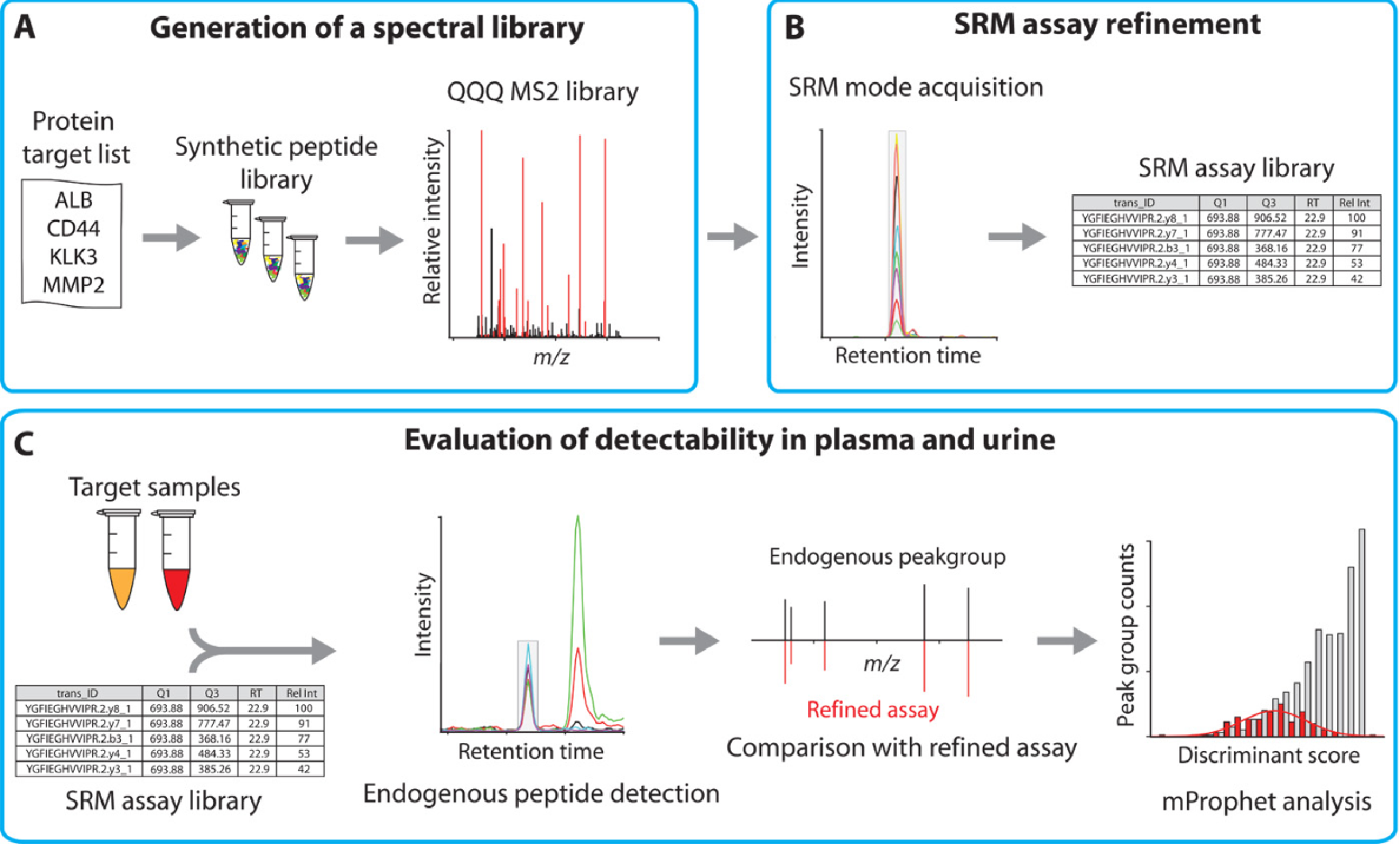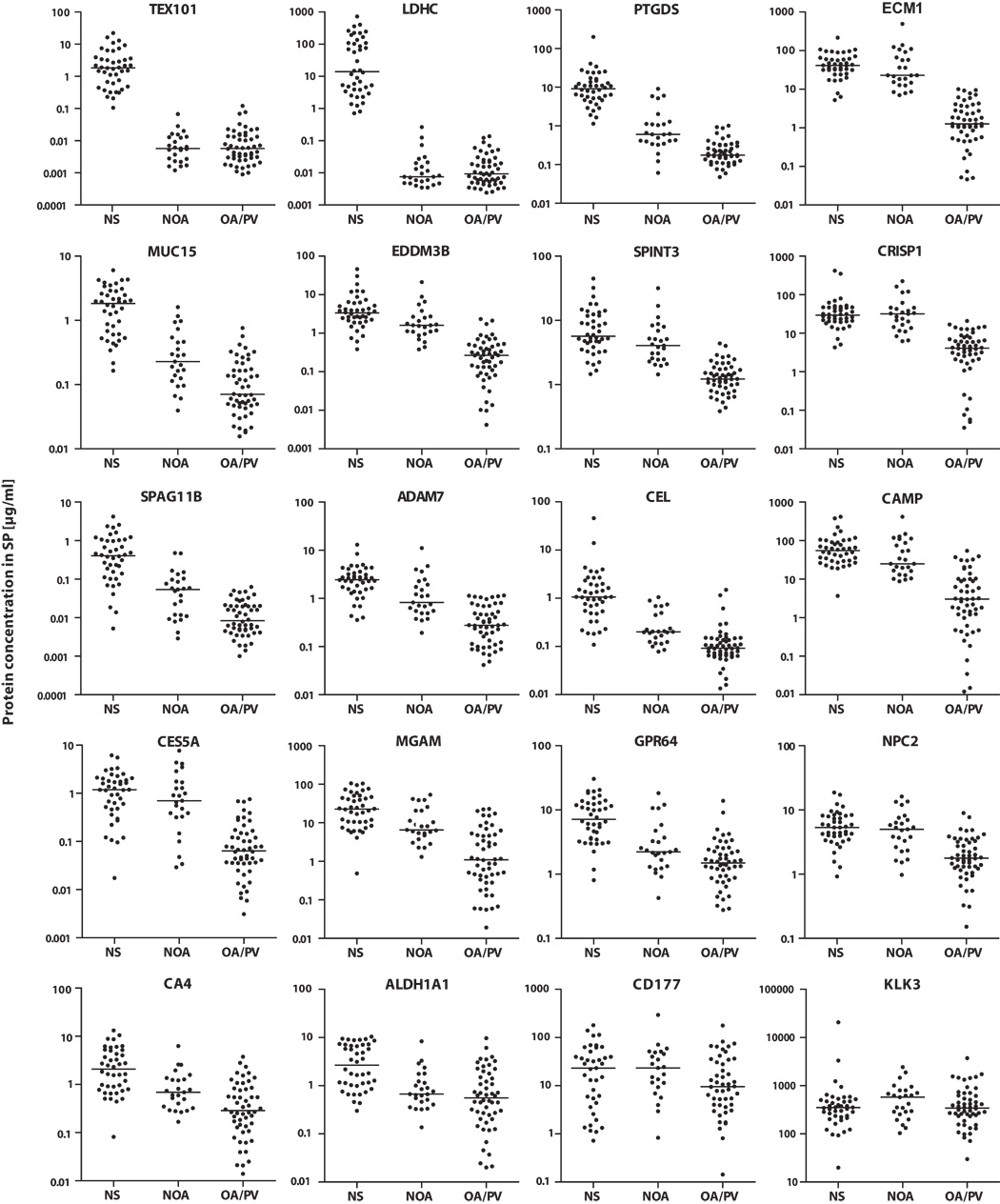Selected Reaction Monitoring Mass Spectrometry Service
Selected reaction monitoring mass spectrometry is a highly targeted and precise analytical technique used to quantify specific peptides and proteins in complex biological matrices. Selected reaction monitoring mass spectrometry relies on tandem mass spectrometry (MS/MS) and triple quadrupole instruments to monitor predefined precursor-product ion pairs. In Selected Reaction Monitoring (SRM), target peptides are ionized, and the first quadrupole (Q1) filters precursor ions based on their mass-to-charge (m/z) ratios. These ions undergo fragmentation in the second quadrupole (Q2), and the resulting product ions are filtered and detected by the third quadrupole (Q3). The process of selected reaction monitoring mass spectrometry ensures exceptional selectivity by focusing solely on transitions of interest, effectively eliminating background noise and improving sensitivity.

Figure 1. Schematic of Selected Reaction Monitoring
Selected reaction monitoring mass spectrometry is widely used for absolute and relative quantification of low-abundance proteins, making it indispensable for biomarker validation and clinical diagnostics. Selected reaction monitoring mass spectrometry is also instrumental in pharmacokinetics and drug metabolism studies, enabling accurate monitoring of therapeutic proteins and small molecules. Additionally, Selected reaction monitoring mass spectrometry supports systems biology by quantifying pathway-specific proteins and post-translational modifications, facilitating a deeper understanding of cellular mechanisms.
Service at MtoZ Biolabs
MtoZ Biolabs offers a Selected Reaction Monitoring Mass Spectrometry Service that provides high-precision quantification solutions tailored to your research needs. Utilizing advanced triple quadrupole platforms, we develop customized SRM assays for specific targets, ensuring high sensitivity and reproducibility. Our Selected Reaction Monitoring Mass Spectrometry Service is designed to support applications such as biomarker discovery, clinical research, and functional proteomics. With expert assay development, data validation, and comprehensive reporting, we deliver reliable and actionable results to accelerate your scientific endeavors.
Service Advantages
1. High Sensitivity
Dual-stage ion selection eliminates interference ions, improving the signal-to-noise ratio for precise detection.
2. High Accuracy
Ensures high analytical accuracy by leveraging the specificity of selected reaction monitoring mass spectrometry, reducing false positives and providing reliable tandem mass spectrometry (MS/MS) data.
3. High Throughput
Delivers high throughput, capable of analyzing hundreds of precursor-product ion pairs in a single cycle, enabling comprehensive studies of protein modifications and abundance changes.
4. One-Time-Charge
Our pricing is transparent, no hidden fees or additional costs.
Applications
1. Selected Reaction Monitoring Mass Spectrometry Service enables accurate and reproducible protein quantification in complex biological samples like depleted plasma and urine.

Figure 2. Workflow Outlining SRM Assay Generation, Refinement, and Application to Detect Target Proteins in Plasma and Urine
2. Selected Reaction Monitoring Mass Spectrometry Service is ideal for discovering potential biomarkers, such as ECM1 and TEX101, to differentiate obstructive and nonobstructive azoospermia in fertility research.

Drabovich, A. P. et al. Sci Transl Med. 2013.
Figure 3. Evaluation of 18 Biomarker Candidates in 119 Seminal Plasma Samples using MS-Based SRM Assay
FAQ
Q: What is the difference between SRM and PRM?
The key difference between SRM (Selected Reaction Monitoring) and PRM (Parallel Reaction Monitoring) lies in how fragment ions are detected. SRM, performed on triple quadrupole mass spectrometers, monitors predefined precursor-product ion transitions with high specificity, making it ideal for targeted quantification. PRM, used with high-resolution instruments like Orbitrap, detects all fragment ions of a selected precursor in a single scan, providing more comprehensive spectral data for analysis. While Selected Reaction Monitoring mass spectrometry is highly specific and optimized for quantification, PRM offers greater flexibility and resolution for identifying complex peptides, albeit with potentially lower throughput compared to SRM.
Deliverables
1. Comprehensive Experimental Details
2. Materials, Instruments, and Methods
3. Total Ion Chromatogram & Quality Control Assessment
4. Data Analysis, Preprocessing, and Estimation
5. Bioinformatics Analysis
6. Raw Data Files
For more information about our Selected Reaction Monitoring Mass Spectrometry Service, please contact us.
MtoZ Biolabs, an integrated chromatography and mass spectrometry (MS) services provider.
Related Services
SRM/PRM (Selected/Parallel Reaction Monitoring)-Based Targeted Validation Service
How to order?







